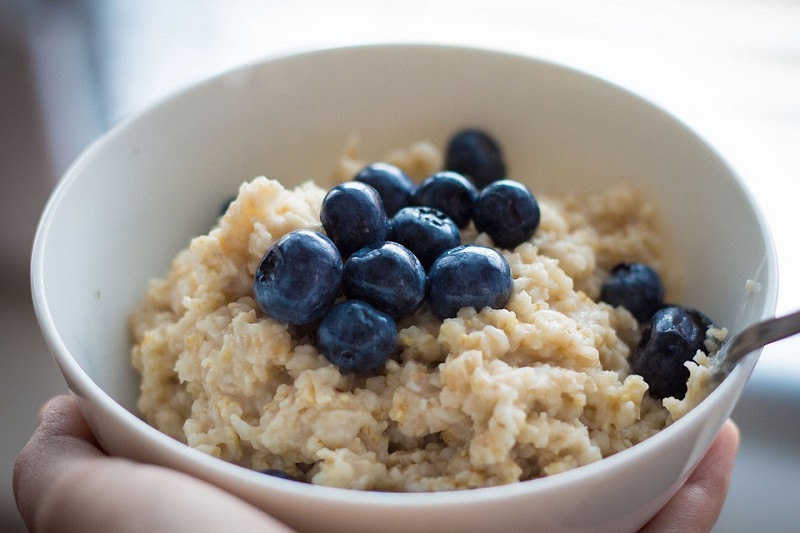Breastfeeding is very nutritious and contains everything a newborn child needs. To provide your child with the nutrients they need through breastfeeding, the mother should first develop a healthy eating habits and choose the right food to help increase her breastfeeding. Let's look at the essential nutrients that breastfeeding mothers should include in their diet.
Vitamin D
Vitamin D is mainly contained in fish oil and fish liver oil, fortified food. Vitamin D plays a very important role in general health, especially bone health and immune function. These vitamins are also found in small amounts in breast milk. However, if the sun exposure is low, the amount will be further reduced. This is why doctors recommend vitamin D for infants aged 2-4 weeks. Women who consume large amounts of vitamin D can give their baby a large amount of vitamin D through breast milk.
On the other hand, deficiency of vitamin D can have serious consequences. Muscles and bones are weakened and the risk of bone fractures increases. Vitamin D deficiency in childhood causes seizures, rickets, and muscle weakness. In addition, vitamin D is associated with many diseases. Foods rich in vitamin D include oily fish such as salmon, egg yolks, shrimp, shrimp, and cheese.
calcium
Calcium and dairy products are important nutrients for breastfeeding women. Breastfeeding reduces bone density by 3 to 9%. After breastfeeding, they are supplemented again. If the mother does not have the right amount of calcium, the mother takes the calcium from the mother's bones and feeds it to the baby through breast milk to feed the baby's bones and nervous system. High calcium foods include cheese and yogurt, beans, lentils, almonds and green leafy vegetables.
A large amount of water
There is a myth that drinking plenty of water increases breast milk. In fact, water helps restore physical stress and replenish energy during childbirth. Thirst during breastfeeding is normal. This is because a large amount of oxytocin hormone is secreted during breastfeeding, and this increase in the amount of oxytocin hormone begins to flow. If you feel thirsty during lactation, you should drink enough water to increase your breast milk.
There is no recommended amount at this time. Whenever you feel thirsty, it is good to drink enough water. If you feel fatigued or do not have enough milk, we recommend drinking more water. And you can judge whether you are drinking enough water now with the color and smell of your urine. If the urine is clear, you are drinking enough water.
 |
| Thirst during breastfeeding is normal (Source = Flickr) |
Omega-3 fatty acid-rich foods
DHA is an essential omega-3 fatty acid that is predominantly contained in seafoods, including fatty fish and birds. These nutrients are very important for the healthy development of the central nervous system, skin, and eyes and for the brain to function properly. "Several studies have shown that omega-3 fatty acids play an important role in the child's brain and nervous system development. But omega-3 fatty acids are also important nutrients for breastfeeding mothers, "says best-selling author Genevieve Holland.
Foods rich in omega-3 fatty acids are low-mercury fish such as salmon, sardines and herring. Vegetarians can substitute seaweed fish, and if they do not like the fishy flavor, they can consume fish liver oil or fish oil supplements. Lack of omega-3 fatty acids in childhood can lead to behavior problems such as ADHD, learning disabilities, and aggression.
Feedable food
Oats, fennel, and fenugreek (herbs used in breastfeeding preparations) are known as foods that can increase breastfeeding. Women who are breastfeeding are encouraged to eat cookies containing these ingredients. There are many products containing these ingredients in the tea for breastfeeding.
Because breastfeeding mothers deliver nutrients to their children through breast milk, it is necessary to drink healthy food and a large amount of water to supplement the energy. When a mother gets enough nutrients, her mother and her baby can be healthy.
 |
| ▲ Oat food helps increase breastfeeding (Source: Pixar Bay) |
![[Parenting] Essential Nutrients for Mother to Breastfeeding 5 parenting essential nutrients for mother to breastfeeding 5](https://moontore.com/wp-content/uploads/2019/02/parenting-essential-nutrients-for-mother-to-breastfeeding-5-1200x700.jpg)


